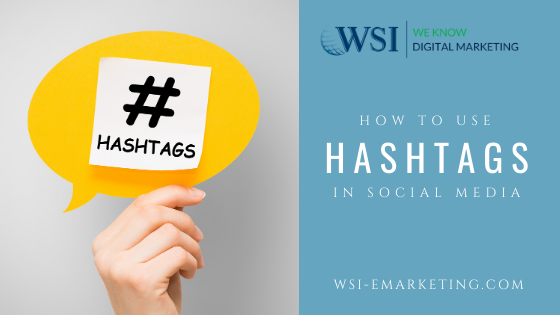
Whether you are organising an event, a conference, promoting a brand, announcing a promotion or selling a product, hashtags can be particularly helpful. However, not everyone knows exactly what they are, how to use them effectively or the consequences of misusing them.
While you don’t have to be a social media expert to successfully use hashtags, you do need some sort of strategy for maximum impact. This does require some additional time and effort but it will be well worth it in the end.
What Are Hashtags And Why Are They So Important?
Hashtags are short phrases that enable people or brands to track and follow people and topics that interest them. A hashtag essentially identifies a certain topic but for use in social media, it involves a little more than the formal definition lets on.
Brands that are not using hashtags are ignoring a key strategy to increase brand awareness and grow their list of potential customers. Indeed, hashtags were initially introduced to make content easier to follow on Twitter but today it has become part of our daily lives in business and pleasure.
How To Use Hashtags In Social Media
There are several ways professionals and businesses can use hashtags. While some use it to monitor online conversations of a target demographic, others promote their brand with a campaign hashtag. While hashtags are most commonly used on social media, they can also be utilised in other marketing materials. There are many different types but we’ll briefly touch on the FIVE most common, i.e.
- Brand hashtag
- Campaign hashtag
- Event hashtag
- Content related hashtag
- Trending hashtag
Brand Hashtag
It may seem simple enough but a brand hashtag should not contain your business name but rather relate to or represent your brand in some way. Brand hashtags should be created for long-term use to get brand recognition as shown by these standout examples:
- Coca-Cola’s #ShareACoke
- Charmin #TweetFromTheSeat
- KFC’s #NationalFriedChickenDay by
- Domino’s Pizza #LetsDoLunch
- Nike’s #JustDoIt
These often overlap with people not directly tweeting about the brand which means you can gain extra exposure and brand awareness without even trying. If you can create a hashtag that people get on board with, those who share it effectively become part of your marketing team. Take a look at some epic hashtag campaign fails.
Campaign Hashtags
Whilst similar to brand hashtags, a campaign hashtag is associated with a single campaign and typically more promotional. In this instance, there aren’t too many rules as you can have one that aims at direct engagement by using actionable language or something that relates explicitly to a campaign.
The idea is to get people talking about the campaign and get customers excited about it rather than just spreading awareness about your brand. A frequently used version of the campaign hashtag is a promotional hashtag. These are highly trackable and ideal to extend your reach on social media.
Top Tip:
Offer a discount code or freebie when someone shares your post and tags it with the specific campaign hashtag.
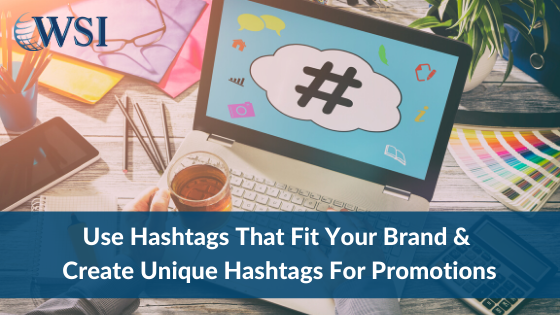
Event Hashtag
Event hashtags are immensely powerful as they can multiply the social media presence of your event by consolidating all the associated posts into one location. The best part is that cross-pollination is far more likely between guests and attendees who don’t know each other but will inadvertently extend the reach of all of your posts. Most events have associated live or recorded Twitter streams in their seminar rooms or conference centres which are great for encouraging audience participation.
Top Tip:
When hosting an event, be prepared with summarised notes of a guest speaker’s key points or conversation-starting opinions. Tweet these at the right time with the relevant hashtag and you should see an increase in the average number of retweets and shares.
Content Related Hashtag
These are the most obvious hashtags as they relate directly to the content of the post. If you’re talking about what you did during the Covid-19 lockdown, you’ll more than likely use #lockdownactivities or simply #Covid19. If you’re talking about breakfast, you might use #Breakfast, #EggsBenedict or #Toast for example.
Whilst these remain useful for businesses, they aren’t as measurable as unique hashtags. However, they are good at helping people see content related to a specific topic or subject matter. These are particularly handy for businesses doing market research, customer insights and monitoring.
Trending Hashtags
A trending hashtag means it is being used a lot which means a large number of people is seeing posts using that tag. Brands should tread carefully here and avoid using trending hashtags purely for extra traffic as it will appear ‘spammy’ and could damage your online reputation.
Trends are generally similar across Instagram, Twitter and Facebook with big potential for your brand but only if you jump on it quickly and if it’s relevant to you. It’s an avenue where you could get exposure from a massive audience outside of your normal following but be careful.
Whatever you decide to do, never post to social media without thinking it through properly. Small businesses typically have to consider their stance on things more carefully than a big company. Make sure you have a social media policy in place if multiple people are posting from company accounts.
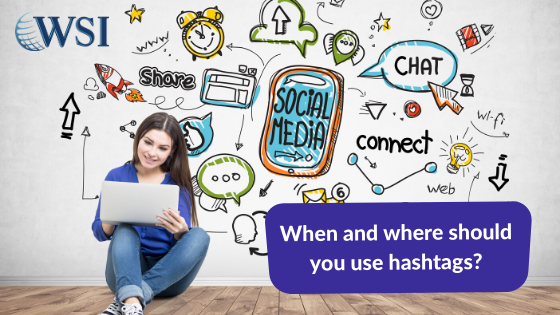
When To Use Hashtags?
A huge benefit of hashtags is that they work at any time of the day, month or year. However, your hashtag success may depend on its popularity and the timing thereof so getting it right is vital. When using the hashtag at any given time, whether it’s trending or not, be strategic about the ones you use.
Remember, as much as timing can affect popular hashtags, it can do the same for those that are not. Look at how the specific hashtag has aged in terms of current events making it irrelevant or if it’s simply no longer a popular choice.
If you choose hashtags without checking whether they are already in use, you may find that you are using the same ones as your competitors or that they are already overused. Worst case scenario, you could inadvertently be endorsing a campaign that goes against your core values.
Final Thoughts
A well-researched hashtag is better than a series of irrelevant ones and research suggests that tweets containing one or two hashtags are most likely to be shared. It often takes time to find the right hashtags for your brand and you may need to try a few options in the process.
To continue using hashtags successfully, invest in social media management and analytics tools. Many apps can track the effectiveness of hashtags and even have free plans that allow you to find the right service for you. By tracking hashtags, you’ll be able to identify what is working and what is not so you can maximise your reach on social media.
If you need help with your social media campaigns and hashtags, please get in touch on our website. Alternatively, call us on 01453 542761 and arrange a free consultation to find the best strategy for you.
Related Post
What’s the single...
Adam Vincenzini from Comms Corner recently posted a very good article which I think goes...
- January 25, 2011
- By Rob Thomas
- Blogging
Effective Facebook Marketing...
With over 600 million users, Facebook represents the single most connected platform on...
- March 1, 2011
- By Nadine Thomas
- Latest Online Trends
How To Drive Sales With...
Landing pages have long been the primary tool of the web-savvy marketer. Whether the...
- June 12, 2011
- By Nadine Thomas
- e-Commerce
Content Sharing Via Social...
Target marketing to meet your business goals Is your business using social media channels...
- June 15, 2011
- By Nadine Thomas
- Digital Marketing
Social Media Spotlight:...
Until Facebook came along, Google was the undisputed online leader. However, this started...
- August 23, 2011
- By Nadine Thomas
- Social Media
10 Best Ways to take...
Others may have seen a pop-up ‘invitation to upgrade’ message when they accessed...
- June 1, 2013
- By Rob Thomas
- Digital Marketing


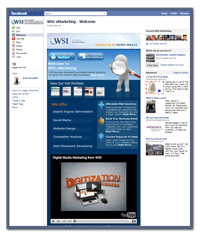
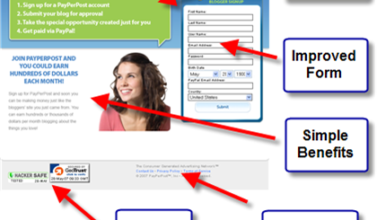
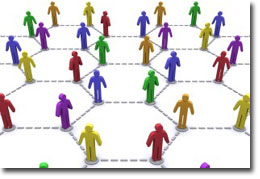
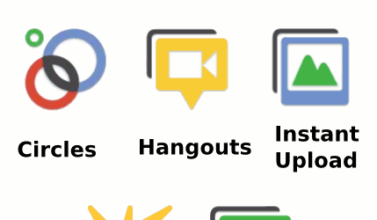
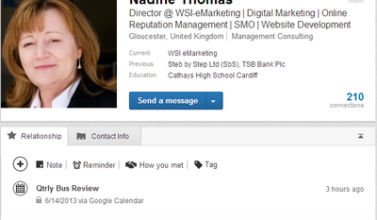
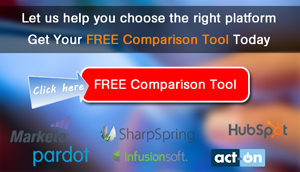



Leave a Comments